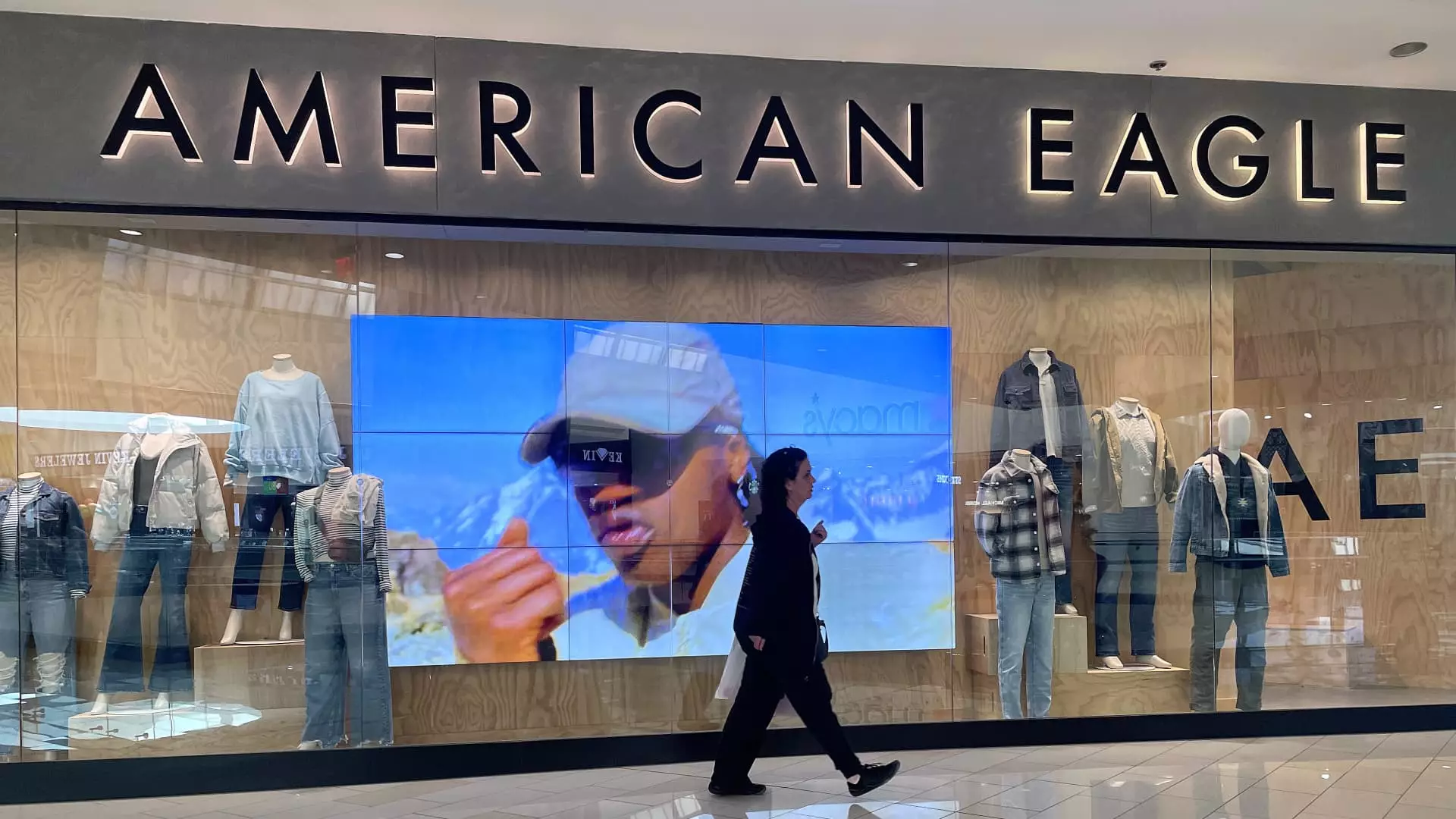American Eagle Outfitters has taken a significant step in protecting its brand identity by filing a lawsuit against Amazon for trademark infringement. The legal action, lodged in the U.S. District Court for the Southern District of New York, centers around accusations that Amazon improperly used trademarks associated with American Eagle’s Aerie clothing line. The lawsuit claims that this unauthorized utilization has led consumers to believe they are purchasing authentic Aerie products when, in fact, they are being directed towards lower-quality knock-offs. American Eagle has articulated a strong position that the brand’s integrity has been compromised due to this alleged infringement, sparking discussions around brand protection in the digital marketplace.
Central to American Eagle’s complaint is the assertion that Amazon is misleading customers searching for Aerie products. They allege that when customers search for items from the Aerie line—known for yoga pants, lingerie, and loungewear—results prominently feature Amazon, which displays third-party sellers offering imitations or “dupes” of these items. By doing so, Amazon is accused of creating an illusion that Aerie products are available for purchase on their site, without the actual authorization from American Eagle. This deceitful marketing practice not only undermines the authentic brand’s value but also dilutes the unique customer experience that Aerie aims to cultivate.
The lawsuit underscores a crucial component of modern branding—the establishment of a unique identity that resonates with consumers. American Eagle has built Aerie into a distinct brand since its launch in 2006. By deliberately choosing not to partner with Amazon for distribution, American Eagle has prioritized fostering a particular brand experience that speaks to its target audience. This commitment emphasizes the importance of consumer trust; when customers engage with the Aerie brand, they expect authenticity and quality, elements that cannot be compromised by counterfeit or inferior alternatives. This legal conflict raises questions about how brands can maintain their integrity in an environment where e-commerce giants like Amazon dominate.
American Eagle’s legal strategy is not an isolated case. In recent years, a multitude of brands has voiced concerns over the sale of counterfeit products on Amazon’s platform. The growth of Amazon’s marketplace has led to an influx of third-party sellers, some of whom may prioritize profit over ethical practices. In 2016, brands like Birkenstock started pulling their products from Amazon, highlighting a growing frustration with counterfeit items saturating the marketplace. Similarly, automotive companies like Daimler AG have faced challenges with counterfeit parts being sold online, prompting legal action. This pattern suggests a systemic issue within the e-commerce landscape, where protecting brand identity often becomes a complex battle.
In previous statements, Amazon has committed to prohibiting the sale of counterfeit goods and has implemented measures to protect brands from infringement. This includes launching legal initiatives against counterfeiters and enhancing tools that allow brands to safeguard their trademarks. However, the effectiveness of these measures remains under scrutiny. The current case brought forth by American Eagle raises critical questions about the extent of Amazon’s responsibility in monitoring third-party sellers and ensuring that they adhere to trademark laws. The e-commerce giant, while emphasizing its role as a marketplace facilitator, must grapple with the implications of allowing such practices that can erode consumer trust.
As American Eagle pursues this legal battle against Amazon, the overarching theme of brand protection emerges as a vital issue for all businesses operating in an interconnected digital space. The outcome of this lawsuit may not only impact American Eagle and its Aerie brand but could also set a precedent for how similar cases are handled in the future. As e-commerce continues to evolve, the discussions about trademark infringement, consumer trust, and brand integrity are proving to be more critical than ever, echoing a broader need for robust protections in the digital marketplace.


Leave a Reply